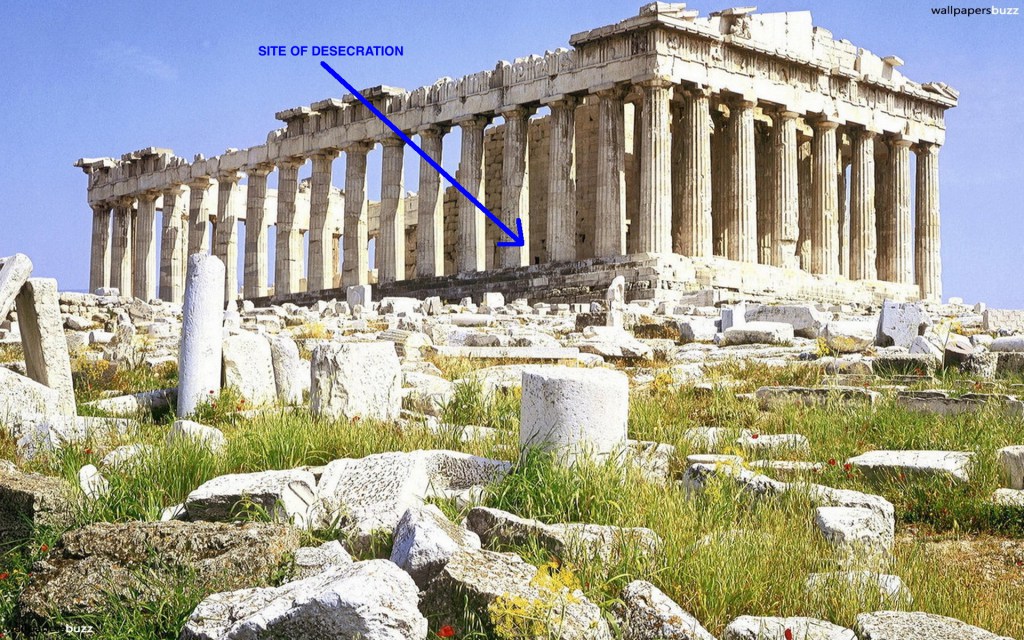The first time I traveled overseas was the summer of 1973. I was eleven, and my grandmother took my mother and me to Europe. We spent a week by ourselves in Britain, then joined a tour group – one of those “If it’s Tuesday, This Must be Belgium” things – with whom we wound through Holland, Belgium, Germany, Switzerland, Italy, Greece and France.
My mom commented about British antique shops. While at home one would see “antiques” from the 1930s or 40s, in Britain those same items were considered just furniture, or housewares. Antique had strikingly different definitions on the two sides of the Atlantic.
In Athens we trudged up the Acropolis. It was early July and hot, hot, hot. I understood that the Parthenon was somehow “historical” but I wasn’t old enough to grasp anything deeper. It was just another heap of rocks. So I took one.
I’m not proud of my place in history as one of Lord Elgin’s looter-successors. There was some political unrest happening in Greece that summer and at the airport the next day it was the first time I ever saw soldiers with machine guns, outside of TV and the movies. I seriously worried that they were there for me, that they were protecting Greek antiquities from desecration.
I escaped the gauntlet, though, and I still have that little stone, but only I would recognize it as a remnant of my career as an international criminal.
I thought of that little piece of stone recently as I strolled through the old part of Narbonne. It’s a pretty city of about 50,000 with a history going back 2000 years, when it sat along the Via Domitia, or Domitian Way, which was the first Roman road into Gaul. Hannibal passed through here on his way to Italy.
I stood beside an old church in the medieval quarter and put my hand on one of the large stones of which it was built. It was cool and smooth to the touch. In an instant I felt both inconsequential and important.
Over the centuries millions of people have worshiped in that church or, like me, just looked at it from the outside. It stood before I touched it and will surely survive me. My existence on earth has no effect on the church’s existence.
And yet I, and only I, stood in that spot with my hand on that stone at that moment. No one, including me, ever will do that again in the history of the world. The church gave me that moment.
Why is that moment significant? Because it became a new piece of the jigsaw puzzle of my life. It wasn’t a missing piece; rather, it created a new picture, and it will be for me to find out to what extent I’m changed.
I believe it’s the same when we encounter all new people, places, experiences, moments. They might or might not dramatically alter the flow of our lives but to varying degrees they always change us. The wonderful thing is that we get to decide what the new picture will be.
